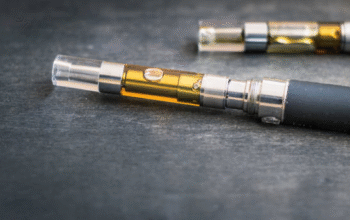Advances in medical technology have transformed how urologists diagnose and treat a wide range of urinary and reproductive conditions. For patients in Brooklyn seeking effective care with faster recovery times, minimally invasive urological procedures offer an excellent option.
If you’re facing issues like kidney stones, enlarged prostate, or urinary tract blockages, understanding these modern techniques can help you make informed decisions about your treatment.
In this post, we’ll explore what minimally invasive urological procedures are, common types performed by Brooklyn urologists, and the benefits you can expect.
What Are Minimally Invasive Urological Procedures?
Minimally invasive procedures are treatments performed through small incisions or natural body openings using specialized instruments and cameras. Unlike traditional surgery, these techniques aim to reduce trauma, pain, and recovery time.
Common methods include:
- Laparoscopy: Using tiny incisions and a camera to operate inside the body.
- Ureteroscopy: Inserting a thin scope through the urethra to access the urinary tract.
- Percutaneous Nephrolithotomy: Removing large kidney stones through a small incision in the back.
- Laser Therapy: Using laser energy to break stones or treat enlarged prostate tissue.
These approaches often mean shorter hospital stays, less scarring, and quicker returns to daily activities.
Common Minimally Invasive Procedures in Urology
1. Ureteroscopy for Kidney Stones
Ureteroscopy involves passing a thin scope through the urethra and bladder into the ureter to locate and treat stones. The urologist can remove small stones or use laser energy to break larger ones.
- Who is it for? Patients with stones too large to pass naturally or causing pain and obstruction.
- Recovery: Usually outpatient with minimal downtime.
2. Laparoscopic Surgery for Prostate and Kidney Conditions
Laparoscopic surgery is used for prostate removal (prostatectomy), kidney tumor removal, and other complex cases. The surgeon operates through tiny incisions using a camera and instruments.
- Who is it for? Patients needing surgery for prostate cancer, kidney tumors, or other conditions requiring organ removal or repair.
- Recovery: Faster and less painful than open surgery.
3. Laser Treatments for Enlarged Prostate (BPH)
Benign prostatic hyperplasia (BPH) is common in older men, causing urinary symptoms like difficulty urinating or frequent urination. Laser therapies vaporize or remove excess prostate tissue to relieve blockage.
- Who is it for? Men with moderate to severe BPH symptoms who want a less invasive alternative to traditional surgery.
- Recovery: Typically quick, with minimal bleeding and hospital stay.
4. Percutaneous Nephrolithotomy (PCNL)
PCNL is recommended for large or complex kidney stones that can’t be treated with shock wave therapy or ureteroscopy. A small incision in the back allows the surgeon to access and remove stones directly.
- Who is it for? Patients with stones larger than 2 cm or with abnormal anatomy.
- Recovery: Hospital stay may be needed, but less invasive than open surgery.
Benefits of Minimally Invasive Procedures
- Less Pain: Smaller incisions cause less tissue damage.
- Faster Recovery: Patients can often return to normal activities within days or weeks.
- Reduced Risk of Infection: Minimizing exposure reduces infection chances.
- Less Scarring: Tiny incisions mean smaller scars.
- Shorter Hospital Stay: Many procedures are outpatient or require just an overnight stay.
What to Expect During Your Treatment Journey
If you’re considering a minimally invasive procedure, your Brooklyn urologist will:
- Conduct a detailed evaluation, including imaging and lab tests.
- Discuss all treatment options, explaining the risks and benefits.
- Prepare you for the procedure with instructions on fasting, medications, and post-op care.
- Provide follow-up care to monitor healing and outcomes.
Always feel comfortable asking questions and discussing concerns with your urologist to ensure you’re fully informed.
Final Thoughts
Minimally invasive urological procedures have revolutionized patient care in Brooklyn, offering effective solutions with less discomfort and downtime. If you’re dealing with kidney stones, an enlarged prostate, or other urologic conditions, don’t hesitate to ask your urologist about these options.
Modern technology and skilled specialists mean better outcomes and a faster path back to your daily life. We recommend urologist brooklyn.




